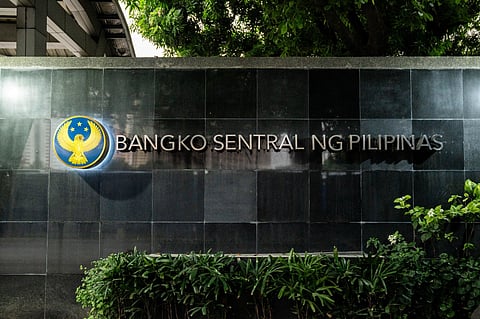Philippines surprises with rate cut, citing flood control scam
BSP warns economic outlook has deteriorated as protests over graft hit confidence

The Philippine central bank unexpectedly cut the benchmark interest rate by a quarter point on Thursday, warning the economic outlook has deteriorated as protests over alleged government graft hit confidence.
The Bangko Sentral ng Pilipinas reduced the overnight target reverse repurchase rate by 25 basis points to 4.75%, as predicted by only seven of 26 economists in a Bloomberg News survey.
The rest expected the BSP to pause an easing cycle that began over a year ago.
The peso extended losses, falling 0.3% against the dollar to 58.14 and underperforming peers in Asia. The currency has declined 2% in the past month, and many economists thought its weakness could lead the central bank to hold.
The surprise decision comes after widespread public protests over the alleged misuse of billions of dollars that should have been spent on flood-control projects.
Lawmakers implicated
Revelations of ghost projects and padded contracts have implicated some lawmakers who have denied wrongdoing, and government spending on large projects could slow to allow closer scrutiny, denting growth in the short term.
“The outlook for domestic economic growth has weakened,” the BSP said in a statement. “This outlook reflects in part the impact on business confidence of governance concerns about public infrastructure spending.”
To be sure, the Philippines had room to cut, with inflation below the central bank’s target range since March. The latest move brings cumulative cuts since August last year to 175 basis points. Price increases quickened to 1.7% in September but stayed below the BSP’s 2%-4% goal, and the BSP said it sees scope for a “more accommodative monetary policy stance.”
“The favorable inflation outlook and moderating domestic demand provide room to further support economic activity,” the central bank said. “As the impact of earlier policy action works through the economy, the BSP will remain attentive to emerging risks while maintaining price stability conducive to sustainable growth and employment.”
Economic damage
The decision underscores policymaker concern that the corruption scandal, which has already rattled investor confidence, could damage one of Asia’s fastest-expanding economies.
Some economists have lowered growth projections to reflect a likely slowdown in state spending, which accounts for about a fifth of output.
Other central banks in the region including New Zealand and Indonesia have recently lowered borrowing costs to prop up economic growth, and the US Federal Reserve appears poised to further cut rates in 2025. Thailand this week surprised with a pause.
Uncertainty over global policies on trade and investment may also cause the Philippines to miss its gross domestic product growth target next year, according to a central bank report last month.







